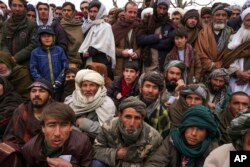The United Nations Security Council on Thursday (17/3) decided to continue and enhance the role of the United Nations Assistance Mission in Afghanistan (UNAMA) for another year, as the country faces serious humanitarian challenges.
“This resolution ensures UNAMA has a strong and solid mandate to promote inclusive political dialogue, monitor and report on human rights, continue to facilitate humanitarian assistance and basic human needs and to dialogue with all actors in Afghanistan, and that includes the Taliban in all of these issues.” said Norwegian Ambassador to the United Nations Mona Juul, whose delegation drafted the text of the resolution.
The resolution, adopted by 14 votes in favor and one abstention from Russia, makes human rights, particularly for women and children and minorities, a top priority.
“Afghanistan cannot prosper if half of its population does not have access to education or is not allowed to work,” said US envoy Jeffrey DeLaurentis. “The US is closely watching the actions of the Taliban to ensure it fulfills its commitments to respect women’s rights across the country.”
Taliban authorities have promised to open secondary schools and universities for girls from March 22. Several board members said they would be watching to see if it was realized.
The resolution also highlighted the importance of inclusive governance and the “full, equal and meaningful participation of women.”
The resolution also gives UNAMA the power to facilitate access to assets of the country’s central bank, which have been frozen abroad to safeguard them from the Taliban, who seized power last August. About $9.5 billion of the fund is in the US.
The resolution also calls for a quarterly briefing on the council.
There is no mention of the name of the Taliban in the resolution, nor is the “de facto authority” as it is often called to refer to the Taliban. The council instead referred to “all relevant Afghan political actors and stakeholders, including the relevant authorities.”
Russia’s envoy to the UN said the country’s abstention was because the council did not get Afghanistan’s approval for the UN mission to attend. Vassily Nebenzia said this was standard practice in previous UNAMA extensions but this time it was met with resistance.
The Afghanistan mission to the United Nations posted a statement on its Twitter account that welcomed the adoption of the resolution. The mission is still represented by diplomats from the previous government, as there has been no official international recognition of the Taliban.
Meanwhile, the humanitarian situation continues to deteriorate. Nearly two-thirds of Afghanistan’s population – some 23 million people – need humanitarian assistance. This is a 30 percent increase from a year ago. [uh/ab]


